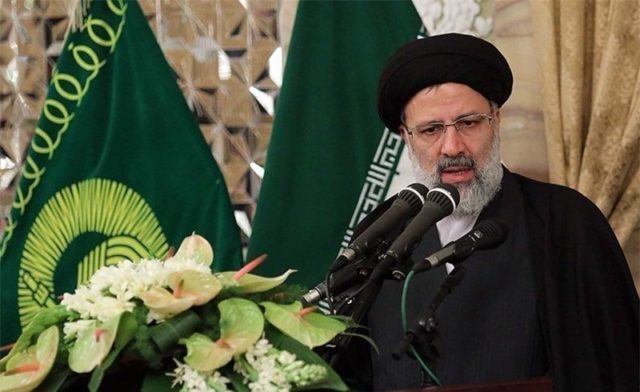
Iran lawmakers want guarantees that US, European countries won’t exit nuclear deal Ebrahim Raisi (Mohammad Hossein Taaghi/WikiCommons)
This article was originally published by Radio Free Europe/Radio Liberty and is reprinted with permission.
Iranian lawmakers have urged President Ebrahim Raisi to obtain guarantees from the United States and three European countries that they won’t exit the nuclear deal being renegotiated in Vienna, Iranian state media reported on February 20.
In a letter to Raisi, they stated that the United States and European parties to the nuclear deal — Britain, France, and Germany — should also guarantee that they would not trigger the “snapback mechanism” under which sanctions on Iran would be immediately reinstated if it violates nuclear compliance.
“We have to learn a lesson from past experiences and put a red line on the national interest by not committing to any agreement without obtaining necessary guarantees first,” lawmakers said in the letter.
The statement was signed by 250 out of 290 Iranian parliamentarians.
It comes as negotiators from Iran and the remaining parties to the agreement — Britain, France, Germany, Russia, and China — are working to revive a 2015 deal, which granted Iran sanctions relief in exchange for curbs on its nuclear program.
The United States has participated indirectly in the talks because it withdrew from the deal in 2018 under then-President Donald Trump. President Joe Biden has signaled that he wants to rejoin the agreement.
Iran’s lawmakers also made it a condition that a return to the deal should only go ahead if all sanctions on Iran are lifted.
They also first want to confirm that Iran receives money from its exports, before Tehran returns to nuclear compliance, the letter said.
On February 19, German Chancellor Olaf Scholz said that the talks in Vienna have come a long way over the past 10 months and that “all elements for a conclusion of the negotiations are on the table.”
But he also criticized Iran for continuing enrichment while suspending monitoring by the UN nuclear agency.
On the same day, Iranian Foreign Minister Hossein Amir-Abdollahian said that it’s up to Western countries to show flexibility and “the ball is now in their court.” He said Iran was “ready to achieve a good deal.”




